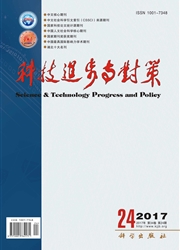

 中文摘要:
中文摘要:
在供应链企业间知识共享过程中,需针对显性知识和隐性知识采取不同的治理机制,以实现整体转移效果最优化。基于这两类知识特性,建立了隐性知识价值可验证时的供应链企业间多任务知识转移模型,研究了两类知识转移效果影响因素。并指出,供应链节点企业应根据两类知识各自的成本结构,结合自身和环境特征,构建合理的激励机制,进而提高供应链知识转移水平。此外,还对导致多任务知识转移激励机制失效的原因进行了探讨,为确保知识转移机制的有效性提供了理论依据。
 英文摘要:
英文摘要:
In the process of knowledge transfer among enterprises in supply chain ,mechanism design is often attributed to the form of knowledge ,so we need to treat explicit and tacit knowledge differently as to achieve optimal results .In this paper ,based on the value of tacit knowledge can be verified ,a incentive mechanism model is designed by the methodology of multi‐task principal‐agent theory ,which analyzes the factors influencing knowledge transfer effect .The results suggest that enterprises in supply chain should establish a reasonable incentive mechanism according to the transaction cost correla‐tion of the two kinds of knowledge ,the characteristics of itself and the external environment ,to improve the knowledge transfer level and the whole competitiveness of supply chain .In addition ,the paper discusses a series of conditions that may lead to the failure of the incentive mechanism ,meanw hile puts forw ard the corresponding solutions ,which supplies the theoretic proof for the effectiveness of knowledge transfer mechanisms .
 同期刊论文项目
同期刊论文项目
 同项目期刊论文
同项目期刊论文
 期刊信息
期刊信息
